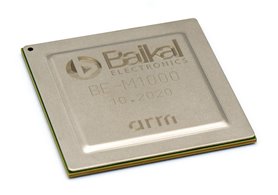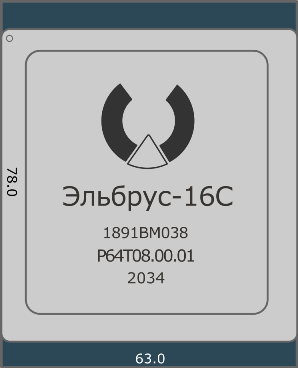
Confronta Elbrus-16S VS Baikal-T1. Which processor delivers superior performance?
In this detailed comparison, we evaluate the specifications and benchmarks of both processors to determine the best choice for your needs. We analyze their core counts, maximum frequencies, and power consumption.
Elbrus-16S boasts a maximum frequency of 2.0 GHz GHz. 16 cores that enhance multitasking capabilities.With a power consumption of 130 W W, it ensures efficient performance.Rilasciato in Q4/2021, it incorporates the latest technology for optimal efficiency.
Baikal-T1 features a maximum frequency of 1.2 GHz GHz. 2 cores designed for high-performance tasks.Its power consumption is 3.9 W W, providing a balance of power and efficiency.Launched in Q4/2016, it is built to handle demanding applications.
 Motivi da considerare
Motivi da considerare Velocità di clock più alta
Intorno a 40% migliore velocità di clock
Più numero di core
14 Più core
Posizioni comuni Elbrus-16S CPU in benchmark popolari, per un confronto con altri modelli.
 Motivi da considerare
Motivi da considerare Prestazioni per watt
About 0.03 meno calore generato dal processore, W.
Posizioni comuni Baikal-T1 CPU in benchmark popolari, per un confronto con altri modelli.
 Elbrus-16S
Elbrus-16S

Comprehensive background on the processors being compared, detailing their series, generation, and targeted market segment.
Essential parameters including the number of cores, threads, base and turbo frequencies, and cache size. These metrics provide insight into the processor’s speed—higher values generally indicate better performance.
Overview of the types and quantities of RAM supported by Baikal-T1 e Elbrus-16S. The supported memory frequencies may vary depending on the motherboard configuration.
Analyze the TDP (Thermal Design Power) requirements of Elbrus-16S e Baikal-T1 to make an informed decision on the appropriate cooling system. Remember that TDP refers to thermal watts, not electrical watts.
Information on architecture, interfaces, and additional instructions supported by Elbrus-16S e Baikal-T1, including virtual machine technologies and fabrication processes.
By analyzing the results from various benchmarks, you can gain a clearer understanding of the performance differences between Elbrus-16S e Baikal-T1.
Compare the synthetic benchmark scores and make an informed decision on the best processor for your needs!